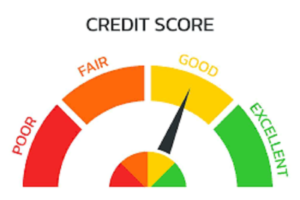Introduction: Co-signing a student loan can be a significant financial decision for parents. While it may provide an opportunity for their children to pursue higher education, it also comes with potential risks and challenges. In this article, we will explore the factors that parents should consider before co-signing a student loan, drawing insights from financial experts and their experiences.

Understanding Co-signing Student Loans
Co-signing a student loan involves agreeing to take joint responsibility for the debt alongside the student borrower. It provides lenders with an additional layer of security, as they can hold both the student and the co-signer accountable for loan repayment. While it can help students with limited credit history secure loans, it’s crucial to understand the implications before making a decision.
The Potential Benefits of Co-signing
Enhanced Access to Financing
Co-signing can enable students to obtain loans they might not qualify for independently, opening doors to educational opportunities that may otherwise be out of reach.
Potential Interest Rate Reduction
With a co-signer, students may qualify for lower interest rates, resulting in long-term savings over the life of the loan.
Building Credit History
Responsible loan repayment by the student can help establish a positive credit history, benefiting their future financial endeavors.
The Risks and Challenges of Co-signing
Shared Liability
Co-signers are equally responsible for the loan, meaning any missed payments or default can impact both the student and the co-signer’s credit scores.
Financial Burden
If the student is unable to repay the loan, the co-signer becomes legally obligated to fulfill the payments, which can strain their financial situation.
Impact on Future Borrowing
Co-signed loans can affect the co-signer’s ability to secure credit for their own needs, such as mortgages or personal loans.
Expert Recommendations and Alternatives
Open Communication
Experts stress the importance of discussing financial expectations, responsibilities, and potential challenges with the student borrower before co-signing.
Exploring Alternatives
Financial aid options, scholarships, or grants should be thoroughly explored before opting for a co-signed loan.
Co-signer Release Options
Some loan programs offer co-signer release after the student borrower demonstrates consistent repayment behavior and meets certain credit criteria.
Mitigating Risks and Making Informed Decisions
Assessing Repayment Capacity
Co-signers should evaluate the student’s ability to repay the loan and consider potential risks to their own financial stability.
Seeking Legal Advice
Consulting with a financial advisor or attorney can provide valuable insights and help parents understand the legal implications of co-signing.
Reviewing Loan Terms
Carefully examining the loan agreement, including details on repayment terms, interest rates, and late payment penalties, is essential before signing.
Conclusion: Co-signing a student loan can be a significant decision for parents, necessitating careful consideration of both the benefits and potential drawbacks. By understanding the implications, seeking expert advice, and exploring alternatives, parents can make informed choices that align with their financial goals and the educational aspirations of their children.
Frequently Asked Questions
- Can co-signing a student loan affect my credit? Yes, co-signing a student loan can impact your credit if the student borrower misses payments or defaults on the loan. As a co-signer, you share equal responsibility for the debt.
- What are the risks of co-signed student loans in the event of a divorce? In the event of a divorce, co-signed student loans can complicate the division of debt. Both parties may still be held responsible for the loan, even if the divorce agreement assigns the debt to one person.
- What happens if the co-signed student loan is now in default? If the co-signed student loan goes into default, the lender can pursue both the student borrower and the co-signer for repayment. This can have severe consequences for both parties’ credit scores and financial well-being.
- How does co-signing a student loan as a parent affect my own ability to borrow? Co-signing a student loan can impact your ability to secure credit for your own needs, such as obtaining a mortgage or personal loan. Lenders may consider the co-signed loan as part of your existing debt obligations.
- What are the risks associated with co-signing a student loan? The risks of co-signing a student loan include potential damage to your credit score, financial burden if the student borrower defaults, and limited options for release from the co-signing obligation.



